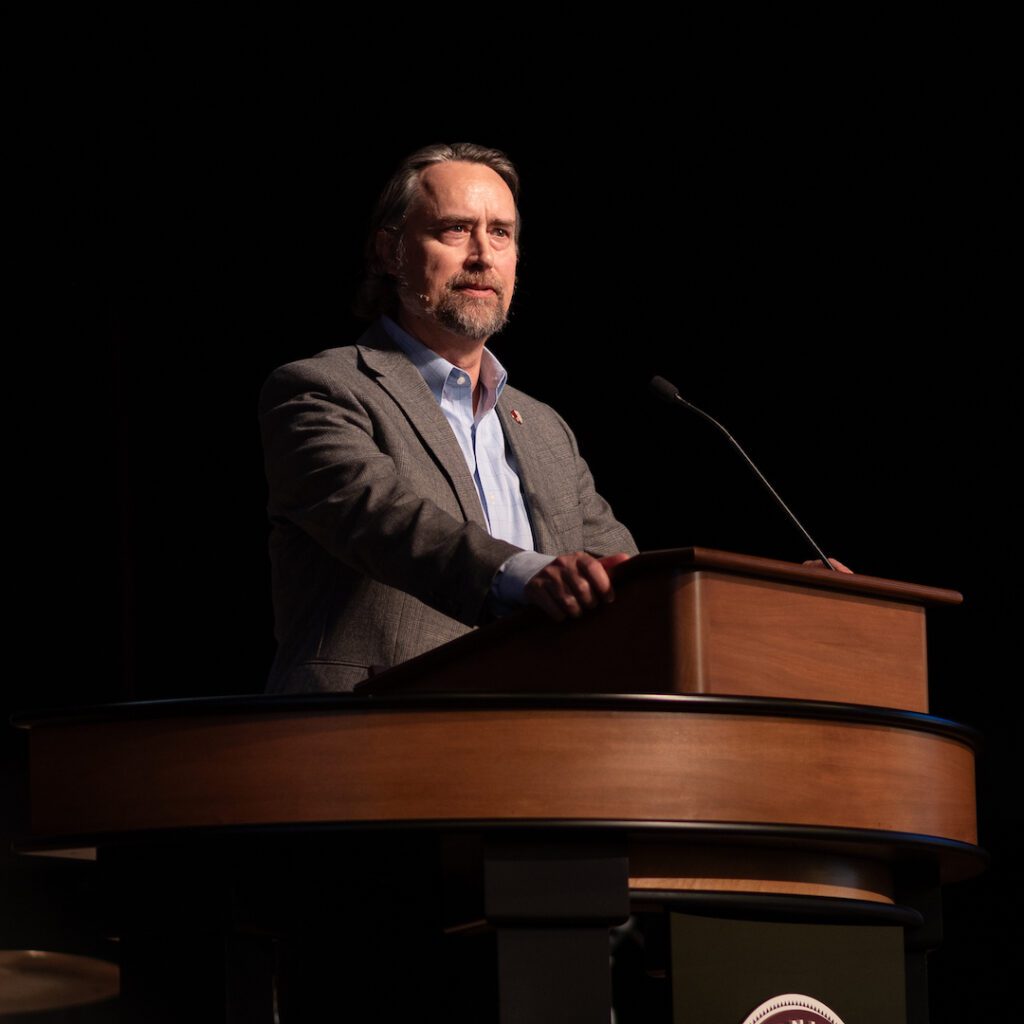


On Thursday, February 29, the University hosted the annual Church Leaders Conference. The conference welcomed over 140 leaders from various churches in the area. This year’s theme tackled a difficult subject: “Recognizing and Resisting Spiritual Abuse in the Church.” Through three sessions led by speaker Dr. Michel J. Kruger, the attendees were able to find encouragement, wisdom, and lessons from his book Bully Pulpit: Confronting the Problem of Spiritual Abuse in the Church.
In the first session, Dr. Kruger laid the foundation for identifying spiritually abusive leaders. He reminded his audience that in training up the next generation of church leaders, the church needs to remember how the current leaders set an example for those who follow in their footsteps. “The issue,” Dr. Kruger clarified about leaders found guilty of spiritual abuse, “isn’t whether they are aware that they’re doing this. The issue is the way they justify that it’s worth doing.” Convinced of an elevated purpose, these leaders who are supposed to be representatives of God, are instead abusing their power for their own gain, setting a poor example for their congregation and for the next generation. Dr. Kruger pinpointed places in Scripture where, though the term “spiritual abuse” is not explicitly stated, there are clear signs and warnings against the possibility. In particular, Dr. Kruger expounded on 1 Samuel 8 and 1 Peter 5 as support for his argument, drawing parallels to show is audience that, both in these Scripture passages and in the modern world, the problem is, “Often, the very kind of leaders people want are the very kind of leaders they end up getting.” Building on this, Dr. Kruger shared characteristics and actions that were or would lead to spiritual abuse that church leaders should be aware of in their church and in their own lives.
In the second session, Dr. Kruger took the opportunity to further clarify what is and is not spiritual abuse. He outlined the two common extremes and subsequent problems with churches attempting to identify spiritual abuse; namely he called out the “nothing to see here” and a “everything is abuse” mentality. Both sides are driven by the current social culture. In particular, proponents of “cancel culture” who work under the assumption of a secular form of justice presume a harmful “guilty until proven innocent” verdict. As a way to counteract these extremes, Dr. Kruger posited six specific clarifications important for recognizing and addressing spiritual abuse, including a need to express spiritual abuse out of love for a church, the recognition that spiritual abuse be inflicted from the flock to their pastor, and other helpful distinctions.
Dr. Kruger then pivoted in the third and final session from being diagnostic in nature to being proactive. He identified ways that an individual, for the sake of themselves and for the ministry he or she runs, can take tangible steps to avoid becoming spiritually abusive. He recognized that most leaders who end up spiritually abusive do not start out that way. Dr. Kruger shared five principles that should mark one’s ministry and therefore build trust and a solid defense against the potential of becoming accused of such a problem. Some of the characteristics he shared included ensuring that churches avoid idolatrously elevating a leader to a “celebrity” status, to value teamwork over hierarchy, and to value openness over reactive defensiveness. Following the third session, participants closed out the day with a Q&A session that allowed for anonymous queries to be shared and addressed by Dr. Kruger.
This year’s topic, while a difficult one to discuss, equipped church leaders with biblical knowledge and tools to graciously yet firmly confront this issue that churches often struggle to recognize and resolve.
Mark your calendars for the 2025 Church Leaders Conference on Thursday, March 6, 2025 as Cairn seeks to support church leaders in their respective ministries.




